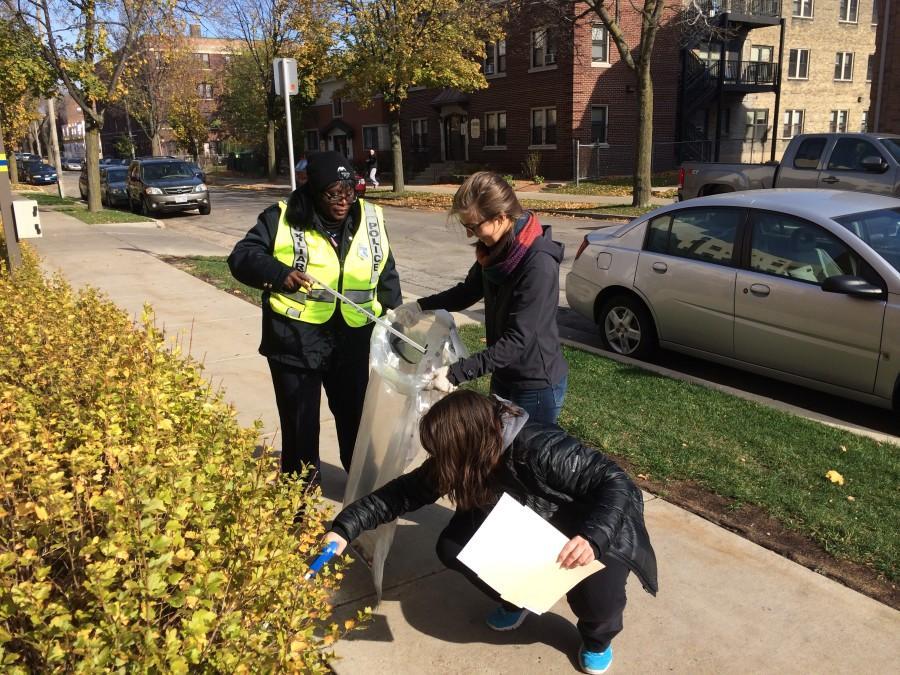When I first read Bob Graf’s viewpoint on Jan. 28, “Alum: ROTC has a place at Marquette,” I cheerfully admit that I was not the most astute of readers. My mind was in a few different places: my morning at an internship, the hour-and-fifteen-minute class that had finally ended and a meeting I was anxious to get through so I could take a nap before dinner.
Regardless, I found myself flipping through a copy of the Tribune in those few minutes before my meeting and my butterfly attention span alighted upon the headline of Graf’s article.
Intrigued, I read the lead paragraph with gusto, which introduces the reader to Graf, an alumnus whose previous pacifist opinions changed after an investigation into “the truth of this moral and ethical question of military training on a Catholic university campus.”
From this paragraph I made two assumptions that blinded me from seeing the rest of Graf’s position clearly. First, I (rightly) assumed that this change in understanding was the article’s thesis.
Second, I (wrongly) assumed the mutually exclusive duality of that thesis; that is, if Graf is no longer explicitly an anti-military peacemaker, then he is clearly a pro-military extremist.
And so, with that faulty conviction triggering a tsunami of anti-war sentiments within me, I committed the mortal sin of journalistic reading: I skimmed.
Only the particularly preposterous phrases caught my hyper-selective attention: “killing on reflex without conscience,” “increase the effective use of weapons to kill the enemy,” “Secretary of Defense to deny federal grants … if they prohibit or prevent ROTC,” “Marquette surrenders oversight of the military curriculum to give credibility to the teaching of war …”
My mind morphed into a tangible passion as my pulse quickened and my hands trembled. Frustration pumping through my veins, I revved up my computer and waited for the Internet to connect me to Graf’s link: nonviolentcow.org.
As the wireless connection chugged along, I reread the article, but this time with more patience. I read again those phrases that had so captured my attention and realized that, in my haste to affirm my own convictions, I had totally missed the biting sarcasm with which Graf writes about Marquette’s military affiliation.
It was my mistake, absolutely (and yes, I laughed!) This truth of my own experience, though — that my conscience was so irritated, even outraged, by this absurd contradiction between creed and deed right here at our beloved school — is not to be overlooked.
This response is not a politically heated or religiously charged stance against the presence of ROTC on Marquette’s campus, although I can’t shake the notion that the presence of a military force in an educational setting essentially is “the teaching of war and values contrary to the Catholic faith and Gospel” that Graf says has no place at Marquette.
Even more, I can’t shake my belief that the roots of creative nonviolence can be traced deep into the ground of humanity’s desire to love and be loved. And these roots of human impulse run so deep within us that they render the word “religion” meaningless.
Anyway, I digress. This response is simply a nod of gratitude to the ridiculously educational moment I had today — one that, as college students, I hope we’ve all had — that things aren’t always what we think they are, and that truly educational experiences often come when we least expect them.
Leah Todd is a sophomore in the College of Communication.




Bob Graf • Feb 24, 2010 at 9:55 pm
Leah, I am not sure if I got the point of your response to my article on ROTC has a place at Marquette. But in the name of higher education and communication I do feel it necessary to make some corrections to your statement.
1) I am not an alumnus of Marquette. I lost my graduate degree in Sociology from Marquette as a result of my involvement in the struggle against Institutional Racism at Marquette. I am also not a pacifist, although I am a want-to-be one.
2) The preposterous phrases that you selectively picked out of content that caught your attention: “killing on reflex without conscience,” “increase the effective use of weapons to kill the enemy,” “Secretary of Defense to deny federal grants … if they prohibit or prevent ROTC,” “Marquette surrenders oversight of the military curriculum to give credibility to the teaching of war …” are based on fact. These statements have been researched, most often from military documents, congressional laws like the Solomon act and the Marquette Library. If you write me at bobsyouruncle@nonviolentcow.org I will be glad to point out the documentation of each point at http://www.nonviolentcow.org
3) You missed the whole point of the article: that I have switched my view of the military on campus from one of being anti-ROTC to one of opposing Teaching War on Campus, especially when our Catholic Church has clearly stated the wars we are engaged in are “unjust and immoral” and that the means of conducting war, like “reflexive killing”, which is the name the military gives it, are against Catholic moral principle.
In conclusion, have the MU Center for Peacemaking show the movie “Soldiers of Conscience” ( I can get you a copy). This movie, authorized by the military, clearly explain what is taught at the regional military training bases at Marquette. You cannot Teach Peace and War on campus. MU does need to host military on campus for ROTC to exist on campus.
Thank you for your response. It is those who are in silence over this moral and ethical issue of teaching war at Jesuit Catholic University that concerns me.
Bob Graf
Luke • Feb 12, 2010 at 8:33 pm
I second that opinion. The presence of a military to defend our country is vitally necessary. If you think that there is absolutely no need for a military, you live in a fantasy world and I will not even begin to argue with you. That said, the implementation of that military is the real topic of debate in my mind. Is the best defense a good offense or should we take what some consider the moral highroad and refrain from oversees military exploits altogether? These are questions that are left, rightfully so, to the civilian leadership of our nation. The peace debate should be aimed at the leadership of or government, not at whether or not to train military men and women.
Clete • Feb 9, 2010 at 8:08 pm
The truth is that the military will exist with or without Marquette’s involvement. Having officers trained and educated on our campus under the influence of the Jesuits provides the Army, Navy, and Air Force with a better cut of officer every year. Officers from Marquette have taken a solid core of courses emphasizing the beauty of humanity everywhere and have lived in a community with Christian values for at least four years. No other institution in the country can create an experience like we have here. These young men and women add to the diversity of the armed forces in a way that should make the entire Marquette community proud.
I believe that this debate is about more than what many people can see: Marquette can either participate in training the future leaders of the military through its sound morals and culture, or it can trust the welfare of the armed forces to every other school in the country.